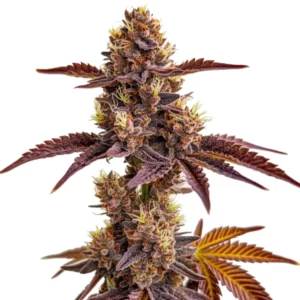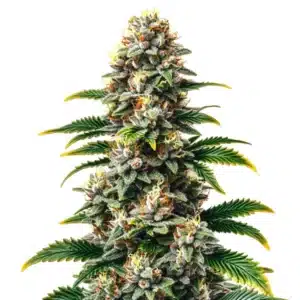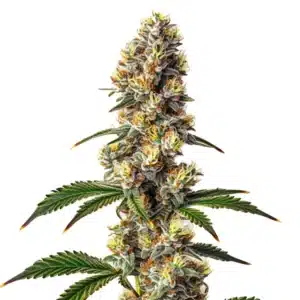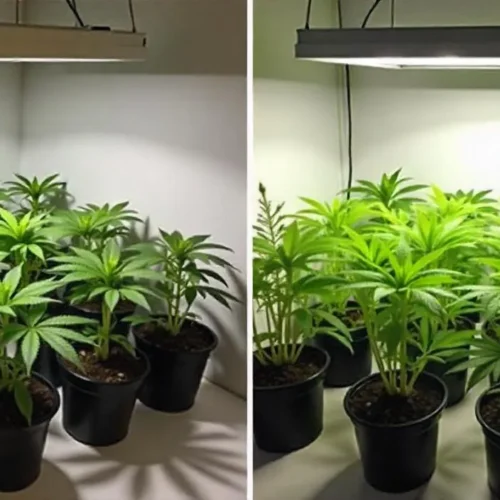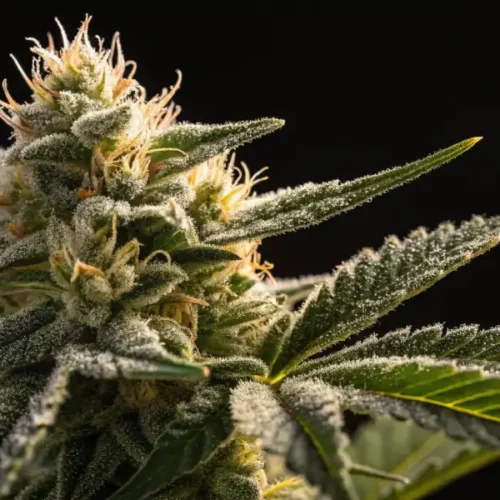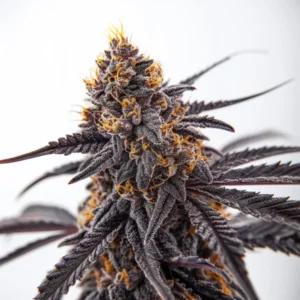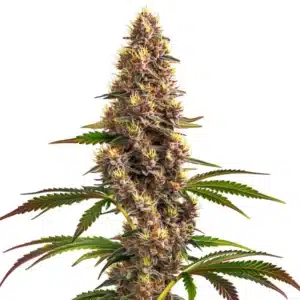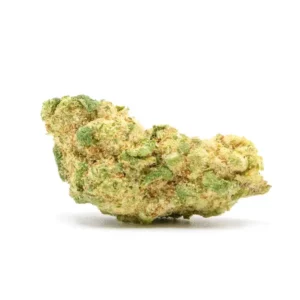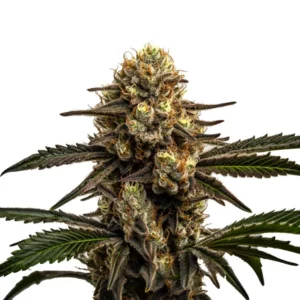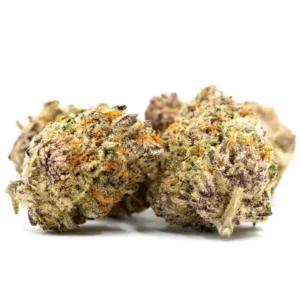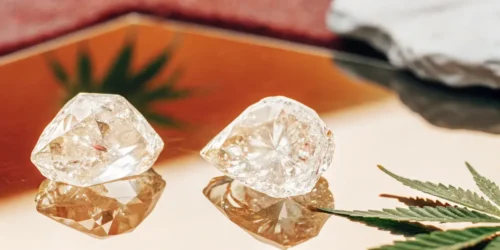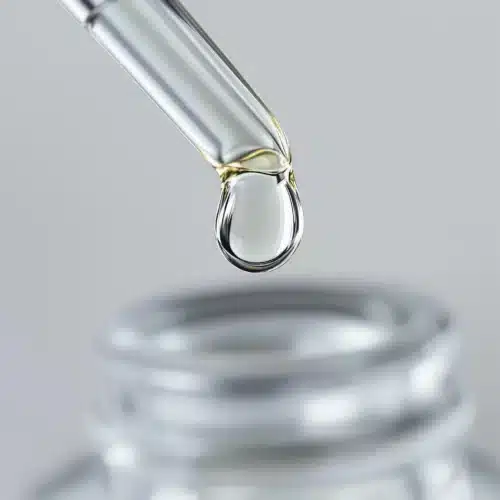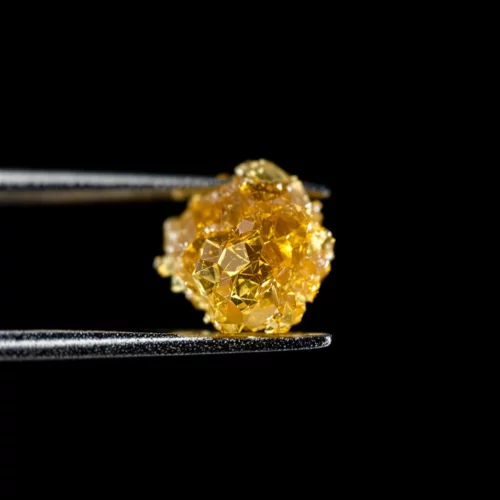What Is the Difference Between HHC vs THCA?
Chemical Structure and Composition
HHC, or hexahydrocannabinol, is a hydrogenated derivative of THC. It has a slightly modified molecular structure that makes it more stable and less prone to degradation compared to THC. This stability is one of the reasons why HHC has become a popular alternative in the cannabis market.
THCA, or tetrahydrocannabinolic acid, is the acidic precursor to THC. Found in raw cannabis, THCA is non-intoxicating until heated, at which point it converts to THC. Unlike HHC, THCA retains the full spectrum of cannabinoids and terpenes in its natural form, making it ideal for those seeking raw, unaltered cannabis benefits.
How HHC and THCA Interact with the Body
HHC interacts with the body by binding to CB1 and CB2 receptors in the endocannabinoid system. This interaction results in psychoactive effects similar to THC, though often described as milder and more relaxing. Users report a gentle euphoria and reduced anxiety, making it a suitable option for casual consumers.
THCA, on the other hand, primarily affects the body when consumed in its raw form or after decarboxylation. Its effects depend on whether it’s consumed as-is (non-psychoactive) or converted to THC through heating. In its raw state, THCA offers potential therapeutic benefits such as anti-inflammatory and neuroprotective properties, appealing to medicinal users.
Effects and Psychoactivity: HHC vs THCA
HHC provides a psychoactive experience but is typically described as less intense than THC. It offers a more controlled, mellow high, making it a good choice for users who want to avoid overwhelming effects.
THCA’s effects vary depending on how it’s consumed. Raw THCA doesn’t produce a high, making it perfect for daytime use or medicinal purposes. When converted to THC, it delivers potent psychoactive effects, appealing to recreational users looking for a more traditional cannabis experience.
Promos & Deals
Benefits of HHC Compared to THCA
Longer Shelf Life and Stability
HHC’s molecular stability makes it a standout option for those looking to store their cannabis products long-term. Unlike THCA, which can degrade into THC over time, HHC maintains its potency and composition even under less-than-ideal conditions.
This extended shelf life is particularly beneficial for casual users who may not consume cannabis frequently. It ensures that the product remains effective and safe to use, even after months of storage.
HHC’s Unique Psychoactive Properties
HHC offers a unique balance of relaxation and euphoria. Many users describe it as a less anxiety-inducing alternative to THC, providing a smoother experience that still delivers noticeable effects.
This makes HHC an attractive option for recreational users who want to enjoy cannabis without the intensity sometimes associated with THC. Its effects are gentle enough for beginners while still satisfying experienced users looking for a lighter experience.
Comparing Medicinal Benefits: HHC vs THCA
Both HHC and THCA offer potential medicinal benefits, but their applications differ. HHC is often used for its relaxing properties, making it effective for managing mild anxiety, stress, and muscle tension.
THCA, on the other hand, is favored by medicinal users for its non-psychoactive benefits. Studies suggest that it may help with inflammation, pain relief, and neuroprotection. For those seeking therapeutic effects without intoxication, THCA stands out as the better option.
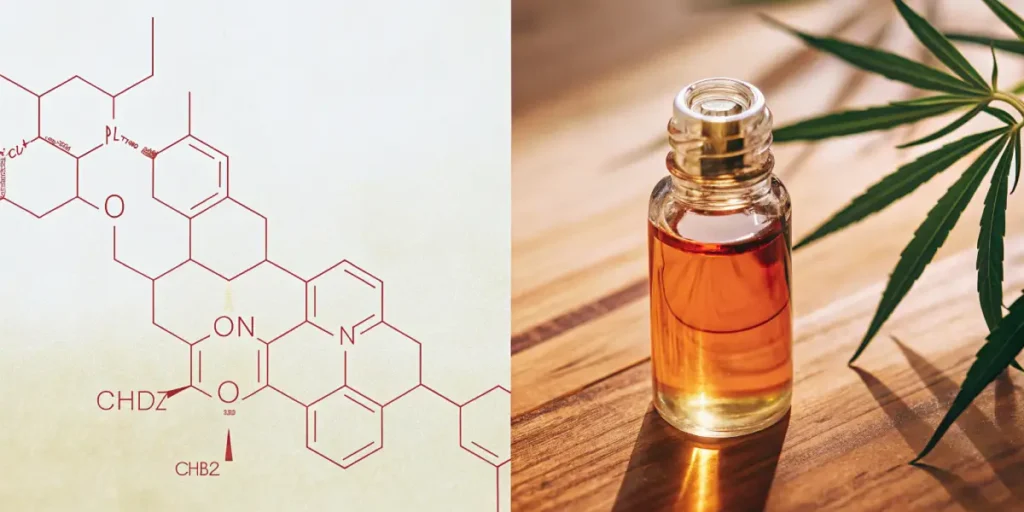
Benefits of THCA Compared to HHC
Raw and Non-Intoxicating Benefits of THCA
One of the most appealing aspects of THCA is its non-intoxicating nature in its raw form. Users can consume raw cannabis juice or edibles made with THCA-rich products without experiencing a high. This makes it an excellent choice for individuals who need relief but prefer to remain clear-headed.
Additionally, raw THCA offers a host of potential health benefits, including anti-inflammatory and antioxidant properties. These benefits make it a valuable option for medicinal users seeking natural wellness solutions.
Full-Spectrum Potential of THCA Products
THCA preserves the full spectrum of cannabinoids and terpenes found in cannabis, delivering the entourage effect. This synergy between cannabinoids and terpenes enhances the overall therapeutic potential of the product, offering more holistic benefits compared to isolated cannabinoids like HHC.
Full-spectrum THCA products are particularly popular among those who value a natural and unprocessed approach to cannabis. They provide a well-rounded experience that targets both physical and mental wellness.
Why THCA Is Popular Among Medicinal Users
THCA’s versatility makes it a favorite among medicinal users. Its non-intoxicating properties allow patients to incorporate it into their daily routines without affecting their ability to work or focus.
For those with chronic conditions such as arthritis, epilepsy, or neurodegenerative disorders, THCA offers potential relief without the psychoactive effects of THC or HHC. This accessibility has solidified its place in the medicinal cannabis community.
How HHC and THCA Are Consumed
Common Consumption Methods for HHC
HHC is versatile and can be consumed in various forms. Vape cartridges are one of the most popular ways to enjoy HHC due to their convenience and quick effects. These cartridges provide a discreet and efficient way to experience the relaxing properties of HHC, making them ideal for recreational users.
Another common method is edibles infused with HHC. Gummies and chocolates allow users to enjoy the psychoactive effects over an extended period, making them a great option for those who prefer a longer-lasting experience. HHC’s versatility in consumption methods adds to its appeal when comparing HHC vs THCA.
How to Use THCA in Its Raw and Activated Forms
THCA offers unique consumption options depending on the desired effects. Raw THCA can be consumed through juices, smoothies, or capsules, providing non-intoxicating therapeutic benefits. This method is popular among medicinal users who prioritize health and wellness without the high.
For recreational users, heating THCA through smoking or vaping activates the compound into THC, delivering a potent psychoactive experience. This versatility makes THCA appealing for both medicinal and recreational users exploring HHC vs THCA as cannabinoid options.
Comparing Edibles, Vapes, and Concentrates
Edibles, vapes, and concentrates are popular ways to consume both HHC and THCA. HHC edibles provide a steady, long-lasting effect, while THCA edibles offer non-intoxicating wellness benefits when consumed raw.
Vaping HHC delivers fast-acting effects, perfect for casual use, while vaping THCA allows for both psychoactive and non-psychoactive experiences depending on the heat applied. Concentrates, such as THCA live rosin, deliver pure, potent effects that showcase the cannabinoid’s full potential, making them a standout in the debate between HHC vs THCA.
HHC vs THCA for Recreational Use
Which Offers a More Mellow High?
HHC is often praised for its mellow, balanced high. Users describe it as less intense than THC, with a focus on relaxation and subtle euphoria. This makes HHC a preferred choice for those seeking a light and enjoyable experience without overwhelming effects.
In comparison, THCA’s psychoactive effects come into play when it’s converted to THC through heating. The high is typically more intense and long-lasting, appealing to seasoned cannabis users. For those deciding between HHC vs THCA, HHC offers a gentler introduction to cannabis products.
Why HHC Appeals to Casual Consumers
HHC’s mild psychoactive properties and versatile consumption methods make it a favorite among casual cannabis users. Its relaxing effects are ideal for unwinding without feeling overly sedated, and its availability in edibles and vapes adds to its convenience.
In the discussion of HHC vs THCA, HHC appeals to those looking for an easy-going experience with minimal risk of anxiety or discomfort. Its reputation as a low-key alternative to THC has made it a rising star in the cannabis market.
THCA for Balanced and Versatile Effects
THCA’s versatility shines in its ability to cater to both non-intoxicating and psychoactive experiences. When consumed raw, it provides therapeutic benefits like anti-inflammatory effects and stress relief. When activated through heat, it delivers a potent high that rivals THC’s intensity.
For users comparing HHC vs THCA, THCA offers the unique advantage of dual use, making it suitable for both medicinal and recreational purposes. Its adaptability ensures that it meets a wide range of needs and preferences.
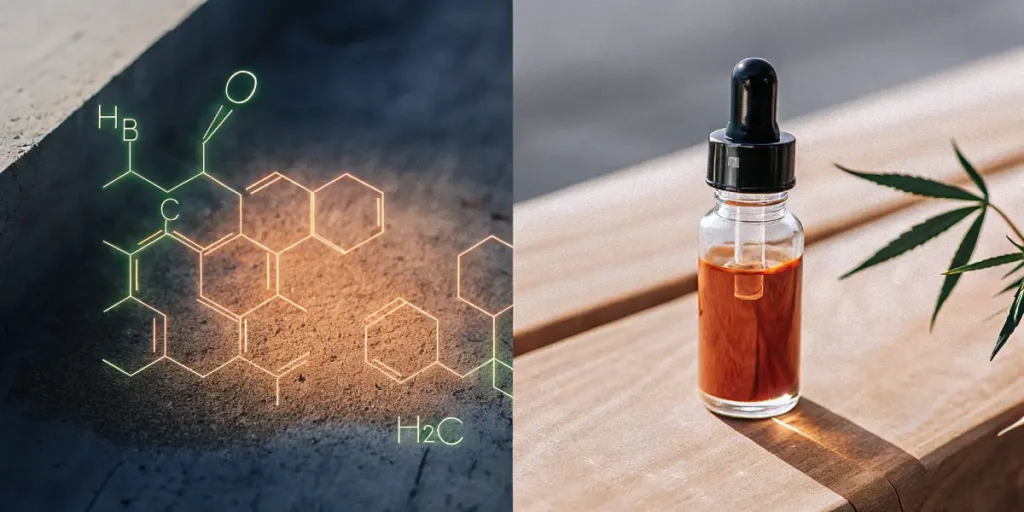
HHC vs THCA for Medicinal Use
Pain Relief and Inflammation: Which Works Better?
Both HHC and THCA have potential benefits for managing pain and inflammation, but they work in different ways. THCA’s anti-inflammatory properties are particularly effective for conditions like arthritis or chronic pain, offering relief without intoxication.
HHC, while less studied, is known for its relaxing effects, which can help alleviate mild discomfort and muscle tension. For those considering HHC vs THCA for pain management, THCA is often preferred for its more targeted therapeutic benefits.
Anxiety and Stress Management: HHC or THCA?
HHC is commonly chosen for its calming effects, making it a great option for managing anxiety and stress. Its mild psychoactive properties provide relaxation without the risk of overwhelming sensations, making it ideal for casual use.
THCA, in its raw form, can also support stress relief without causing intoxication. Medicinal users often find it helpful for managing anxiety symptoms while staying clear-headed. In the context of HHC vs THCA, both cannabinoids have unique advantages depending on the user’s needs.
HHC and THCA for Sleep and Relaxation
For sleep support, both HHC and THCA offer potential benefits. HHC’s gentle high can help users unwind, promoting a restful night’s sleep. It’s especially effective for those who struggle with mild insomnia or racing thoughts.
THCA, when converted to THC, can deliver a more sedative effect, ideal for deeper relaxation or chronic sleep issues. Comparing HHC vs THCA, HHC is better for light relaxation, while THCA offers a more robust solution for serious sleep challenges.
Safety and Legality: HHC vs THCA
Legal Status of HHC and THCA in Different Regions
The legality of HHC and THCA varies depending on local laws and regulations. HHC, derived from hemp, is often considered legal under federal law in many regions, though some states may restrict its sale.
THCA, being a precursor to THC, faces more complex legal restrictions. While raw THCA is non-intoxicating, its potential conversion to THC can place it under stricter regulatory categories. Understanding the legal landscape is essential when choosing between HHC vs THCA.
Safety Profiles and Potential Side Effects
Both HHC and THCA are considered safe when used responsibly, but their effects differ. HHC is known for its mild psychoactivity, with fewer reports of anxiety or paranoia compared to THC. This makes it a safer choice for users prone to these side effects.
THCA, especially in its raw form, is non-intoxicating and generally well-tolerated. However, once converted to THC, it can cause side effects like dry mouth, dizziness, or heightened anxiety in sensitive users. Evaluating personal tolerance is crucial when exploring HHC vs THCA.
Lab Testing and Quality Assurance
Lab-tested products ensure safety and consistency for both HHC and THCA. Reputable brands provide detailed lab results, verifying cannabinoid content and the absence of contaminants like pesticides or heavy metals.
When comparing HHC vs THCA, always prioritize products from trusted retailers with transparent testing practices. This ensures you receive a high-quality product that delivers the desired effects without compromising your safety.
Popular THCA Strains for Every Experience
Indica-Dominant Strains for Relaxation
Indica-dominant THCA strains are perfect for users looking to unwind and destress. Strains like Donny Burger and Super Boof are known for their potent calming effects. These strains provide deep relaxation, making them ideal for evening use or when you want to settle into a peaceful state.
For medicinal users, indica strains high in THCA may offer relief from chronic pain, insomnia, and muscle tension. Their earthy and pungent flavor profiles add to the overall soothing experience.
Sativa-Dominant Strains for Energy and Focus
Sativa-dominant THCA strains like Lilac Diesel and Apple Fritter provide an uplifting and energetic experience. These strains are popular among users who seek creative inspiration or need a burst of energy during the day.
These strains also deliver a vibrant terpene profile with fruity and floral notes, making the experience as flavorful as it is effective. Medicinal users often turn to sativas for relief from fatigue, stress, or mild depression.
Balanced Hybrids for Versatility
Hybrid strains like Runtz x Jealousy and Gelato offer a balanced experience, combining the best of indica and sativa effects. These strains are versatile, providing relaxation without excessive sedation and energy without overstimulation.
Hybrids high in THCA are perfect for users seeking a tailored experience that adapts to their needs. Whether for daytime focus or nighttime relaxation, these strains deliver consistent results and flavorful hits.
Terpene-Rich Strains for Flavor Enthusiasts
Strains like Jokerz Candy and Gorilla Glue G4 are favorites among flavor enthusiasts. Their terpene profiles enhance both the aroma and taste, making every session enjoyable. These strains also showcase the full potential of THCA, delivering potent effects alongside rich, complex flavors.
FAQs About HHC vs THCA
Is HHC Stronger Than THCA?
HHC and THCA offer different types of experiences, so “stronger” depends on your goals. HHC provides a mild psychoactive high, often described as less intense than THC, making it suitable for casual use.
THCA, in its raw form, is non-intoxicating, but when converted to THC, it delivers a potent psychoactive effect. For users comparing HHC vs THCA, HHC is milder, while activated THCA offers a stronger high.
Can THCA Convert to HHC Naturally?
No, THCA does not naturally convert to HHC. THCA transforms into THC through decarboxylation (heating), but the chemical structure of HHC is distinct and requires hydrogenation, a lab process. When exploring HHC vs THCA, it’s essential to understand that they are separate cannabinoids with unique properties.
Which Is Better for Beginners: HHC or THCA?
For beginners, HHC is often the better choice due to its mild psychoactive effects. It allows new users to ease into the cannabis experience without the risk of overwhelming sensations.
THCA, when consumed raw, is also beginner-friendly as it doesn’t produce a high. However, activated THCA may be too potent for those new to cannabis. When deciding between HHC vs THCA, consider your tolerance and desired effects to make the right choice.

